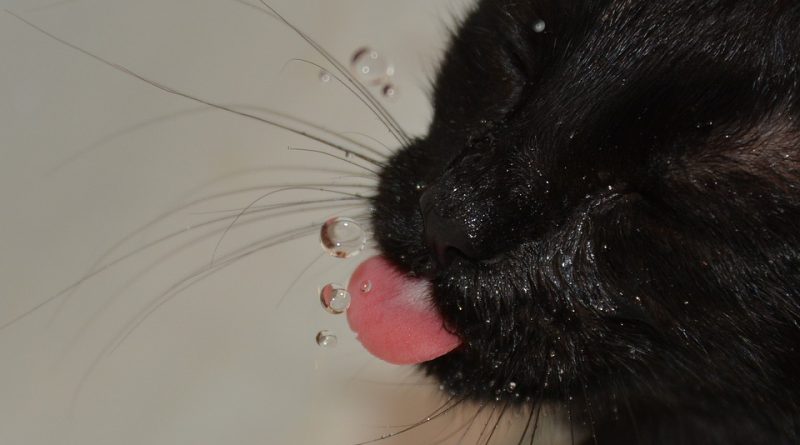Tips and Tricks to Get Your Cat to Drink More Water
Cats are historically desert animals and got most of their moisture they needed from their prey, which means they didn’t need to drink water as often as dogs. However, there are a variety of medical conditions that benefit from a cat increasing their water intake. Some common examples are kidney disease and bladder stones or crystals. Cats with kidney disease lose the ability to concentrate their urine and therefore urinate more than they would normally, which can lead to dehydration if they do not drink enough to compensate. In diseases that affect their bladders and urinary tract, cats can have inflammation and irritation and sometimes even develop bladder stones. Increasing water intake can sometimes help with many urinary conditions by flushing out the kidneys, the bladder, and the rest of the urinary tract. Unfortunately, this can be difficult and getting cats to drink more water can seem like an impossible task. That is why we have included some of the tips and tricks we have used to increase water intake in cats who need it.
Wet Food
If your cat already likes and is eating wet food, you are in luck! Wet food is a great source of water for cats. If your cat is already on wet food, but still needs to increase their water intake, you can try adding a small amount of extra water to the food. If your cat refuses to eat the food with water added, do not try to force it as the cat could develop an aversion to that food or worse – go on a hunger strike! If your cat currently only eats dry food, talk to your veterinarian about which wet food meets your cat’s nutritional needs. You can try to slowly introduce wet food to their diet. It is important to try different flavors and textures of wet food as cats can be very picky about what they will eat. Some cats will only eat paté while others will only eat chunks in gravy or loaf-style textures. The most important rule to follow is that if your cat does not like wet food, do not try to force them to eat it, but consider additional strategies like those listed below.
Dry Food
If your cat eats dry food and is not willing to switch to wet, you can try adding water to the kibble. The kibble will absorb the water and become softer. If you add the water very gradually, your cat may learn to eat the moistened kibble. But, if your cat refuses to eat the altered food, be sure to provide them with their dry food rather than letting them go without food.
Keep the Water Bowl Next to the Food
When water is placed next to their food, cats may be more likely to drink the water while eating. Many cats will switch back and forth between eating and drinking, especially if they only eat dry food. Another successful technique for some cats is to place the kibble in a timed feeder and have a bowl of water next to the feeder. As the cat waits for food, they may be more likely to drink the water since it is there.
Water Fountains
Filtered water fountains are a good way to get some cats interested in water. Some cats like flowing water and the filter helps keep the water fresh. Be careful to clean out the filter regularly (at least weekly or as directed by the product instructions) as bacteria can otherwise build up and discourage your cat from drinking as well as be harmful to them. Additionally, though unfortunately not environmentally friendly, some cats enjoy running water even more than fountains so leaving a faucet on at a light drip (if there is no water shortage) for periods of time when your cat is active can be another strategy to try if water fountains don’t do the trick.
Try Different Dishes
You can try using bowls that contain different materials and see which one your cat likes best. Options include glass, stainless steel, ceramic, etc. You can also experiment with the size and shape of bowls.
Increase Water Access
Place multiple water bowls in a variety of locations throughout your house. This way your cat has constant and convenient access to water.
Wash Water Dishes Frequently
Cats can be very sensitive to the smell and taste of water. Also, they can be very picky about water temperature. Changing the water often helps keep it fresh and at a temperature that they prefer. Wash all bowls daily to avoid bacterial build up.
Fill the Bowl Completely
When filling the water bowl, filling it to the top may make some cats more likely to drink it. Cat’s whiskers are very sensitive to touch and some cats do not like when their whiskers touch the edge of the bowl.
Adding Broth or Other Water
Adding broth to a diet can be a good way to add moisture for cats that need it, but check with your veterinarian before starting as some broths may have added nutrients like salt that your cat can’t tolerate (or have added garlic or onion that can be toxic to pets). Other options for adding moisture are using flavored water or bottled water. There are also products that can be given to cats to provide hydration but be sure to talk to your veterinarian about whether these products are appropriate for your cat.
Written in conjunction with veterinary student, Sasha Santiago.

